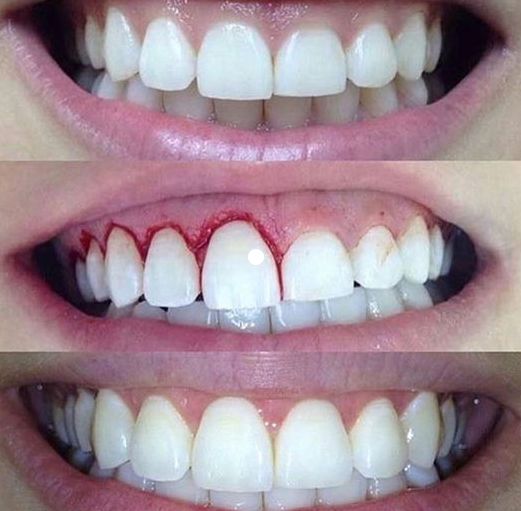Periodontology
- Home
- Periodontology
Periodontology: The Key to Healthy Gums
Periodontology is the branch of dentistry that zeroes in on gum health. It’s all about preventing, diagnosing, and treating gum diseases. These diseases are common and can wreak havoc on your oral health if ignored. Let’s dive into why periodontology is crucial and what it means for your gums.
What Are Periodontal Diseases?
Periodontal diseases involve inflammation and infection of the gums. If untreated, they can damage the tissues and bones supporting your teeth. The main culprit? Plaque—a sticky film of bacteria on your teeth. If not brushed and flossed away, plaque hardens into tartar, which only a dentist can remove. The bacteria in plaque and tartar release toxins that inflame the gums and break down supporting structures.
Types of Periodontal Diseases
- Gingivitis: The mildest form, marked by red, swollen, and bleeding gums. It’s reversible with good oral hygiene and dental care.
- Periodontitis: If gingivitis isn’t treated, it can turn into periodontitis. This severe gum disease destroys gum tissue and bone, potentially leading to tooth loss.
Symptoms to Watch Out For
- Red, swollen, or tender gums
- Bleeding gums, especially when brushing or flossing
- Receding gum line
- Persistent bad breath
- Loose or shifting teeth
- Changes in bite
Why Is Gum Health Important?
Healthy gums are vital for overall oral health and well-being. Here’s why:
- Preventing Tooth Loss: Gum diseases are a top cause of adult tooth loss. Healthy gums help maintain the stability of your teeth.
- Aesthetic Benefits: Healthy gums contribute to a beautiful smile. Gum disease can cause recession, leading to an uneven gum line and exposed roots.
- Systemic Health: Research links gum health to overall health, highlighting the importance of maintaining periodontal health.
Oral Hygiene Tips
Keeping your teeth and gums healthy requires proper oral hygiene. Follow these tips:
- Brush Twice Daily: Use a soft-bristled toothbrush and fluoride toothpaste. Brush for at least two minutes, morning and night.
- Floss Daily: Flossing removes plaque and food particles between teeth and along the gumline.
- Use Mouthwash: An antimicrobial mouthwash helps kill bacteria and freshens breath. Opt for one with fluoride for extra protection.
- Clean Your Tongue: Use a tongue scraper or brush to remove bacteria and debris.
- Replace Your Toothbrush Regularly: Swap out your toothbrush or head every 3-4 months or sooner if bristles are frayed.
- Eat a Balanced Diet: Limit sugary and acidic foods and drinks. Choose a diet rich in fruits, veggies, whole grains, and lean proteins.
- Drink Water: Water helps rinse away food particles and bacteria, keeping your mouth hydrated.
- Avoid Tobacco: Tobacco products increase the risk of oral cancer, gum disease, and tooth loss.
- Visit Your Dentist Regularly: Regular check-ups and cleanings are essential for maintaining oral health.
- Monitor Oral Health Changes: Be alert to changes like bleeding gums, tooth sensitivity, or bad breath. Consult your dentist if you notice anything unusual.
Consistent oral hygiene is your best defense against dental problems and key to a healthy smile.

